Bruce McAvaney calls his way into SA Sport Hall of Fame
Bruce McAvaney, the consummate professional and enthusiastic personality who has become one of Australia’s most revered commentators, has been selected to join the ranks of the South Australian Sport Hall of Fame.

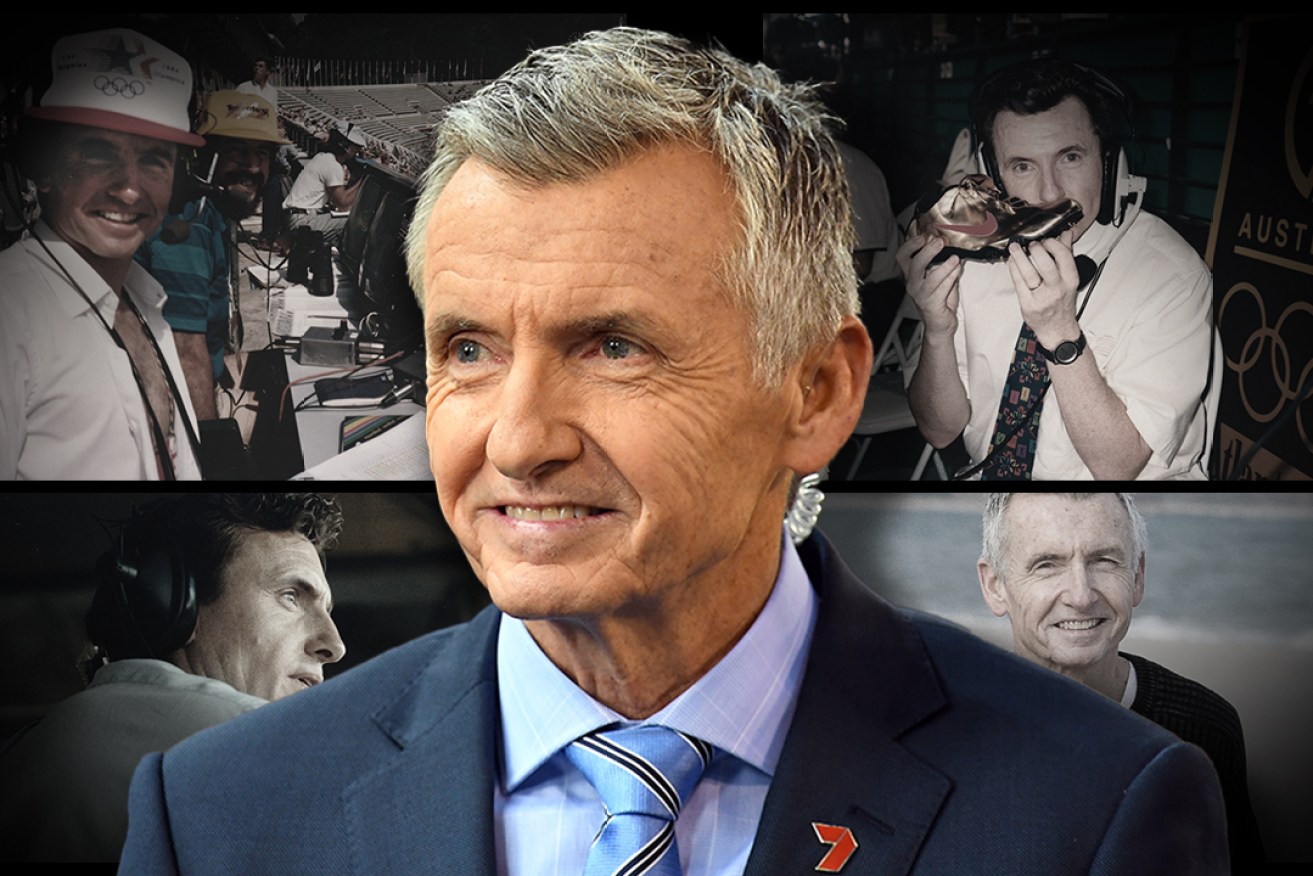
Bruce McAvaney's achievements across a nearly 50 year career will recognised in the SA Sport Hall of Fame. Image: Tom Aldahn/InDaily. Central photo: Julian Smith/AAP
“In many ways the most relaxed I feel – unless I’m having a disaster, which can happen – is when the headphones are on,” McAvaney tells InDaily.
“Because it feels natural, it feels like it’s your natural habitat.”
McAvaney has been the soundtrack of must-see Australian sport for the best part of 40 years.
His infectious enthusiasm, meticulous preparation and encyclopedic knowledge of whatever he’s covering has become familiar to – and universally respected by – sports fans and media colleagues across the country.
After getting his foot in the door in 1976 calling the Globe Derby Park trots for Adelaide radio station 5DN, his career evolved into one of national and international significance. His voice is forever connected to some of Australia’s most iconic sporting moments, perhaps none more significant than Cathy Freeman’s gold medal at the 2000 Sydney Olympics.
His broadcasting has been the soundtrack of 20 AFL grand finals, 10 Summer Olympic Games and dozens of Melbourne Cups and Australian Open tennis championships.
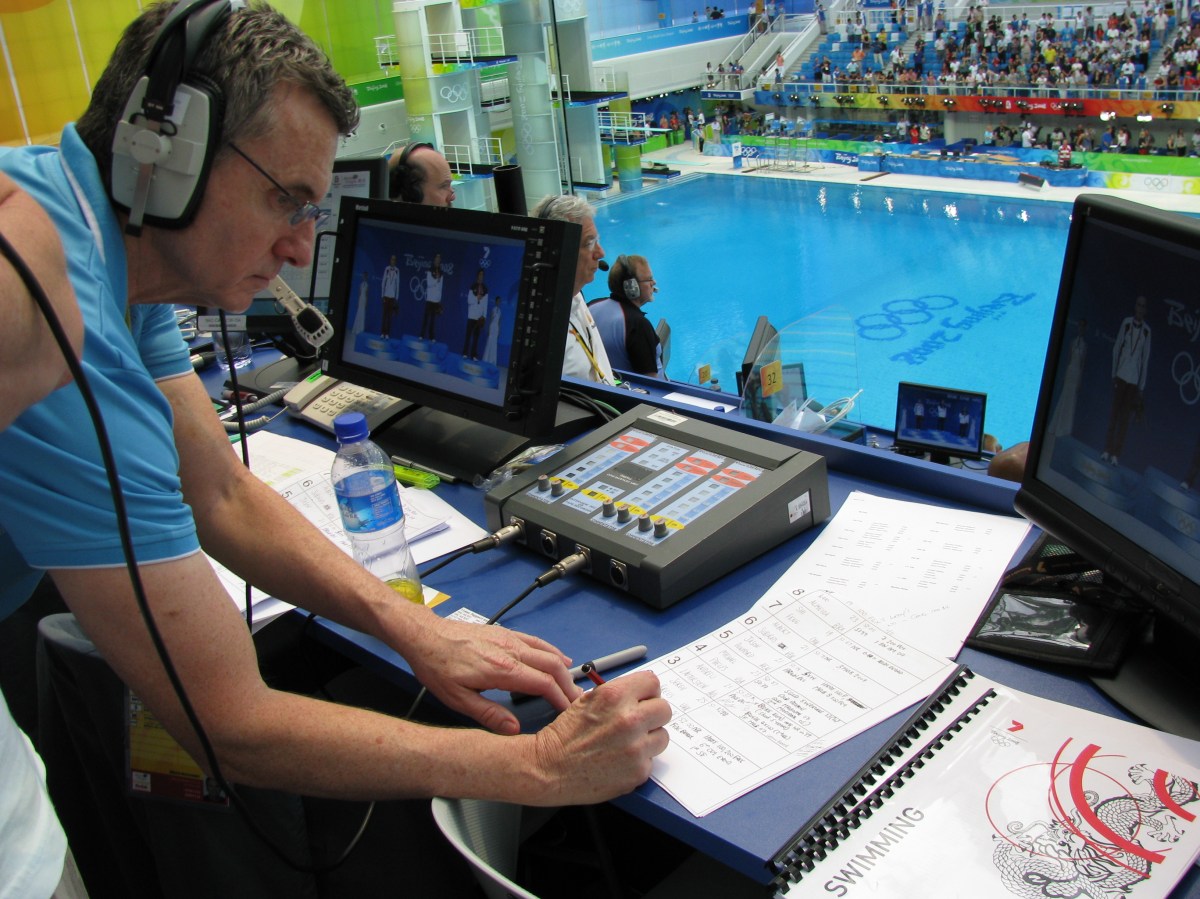
Bruce McAvaney writing notes at the 2008 Beijing Olympics. Photo: supplied
This year, the Adelaide-born commentator will be recognised as the first media personality inducted into the SA Sport Hall of Fame.
“It’s an honour – it’s a big honour,” McAvaney said.
“But it’s a bit of dissection in terms of: have I done enough; have I done it well enough; have I done an important enough job?
“Then you think of who’s already been inducted, and then you think, well, what a wonderful thing to be remembered in such a way and to have that while you’re still alive and well.”
McAvaney, 69, is the sixth and final member of the 2023 hall of fame class, following SANFL footballer Bob Quinn, lawn bowler Mary Ormsby, ironman Dwayne Thuys, skater Tammy Bryant, and Matildas footballer Di Alagich.
The SA Sport Hall of Fame boasts an illustrious club of more than 80 South Australian athletes, coaches and sports administrators. Seven of these – Sir Donald Bradman, Bart Cummings, Barrie Robran, Victor Richardson, Gillian Rolton, Anna Meares and Russell Ebert – have been elevated to “legend” status.
McAvaney, a member of the SA Sport Hall of Fame selection committee, said he grew up admiring many of the athletes he now stands alongside. He makes special mention of cycling coach Charlie Walsh (inducted 2012), who shared a close relationship with McAvaney’s family and grew up with him on the same street in Ferryden Park.
“I’ve always idolised Charlie, so for me to be now recognised in a similar way is a very real thing for me,” he said.
“We came from a little place in Inverway Street in Ferryden Park. It was a humble abode. It was a great street.
“We got on so well and I’ve always looked up to him… and now to think that we’ll be recognised in a similar way is pretty good for me.”
A race-calling kid from Adelaide’s northern suburbs
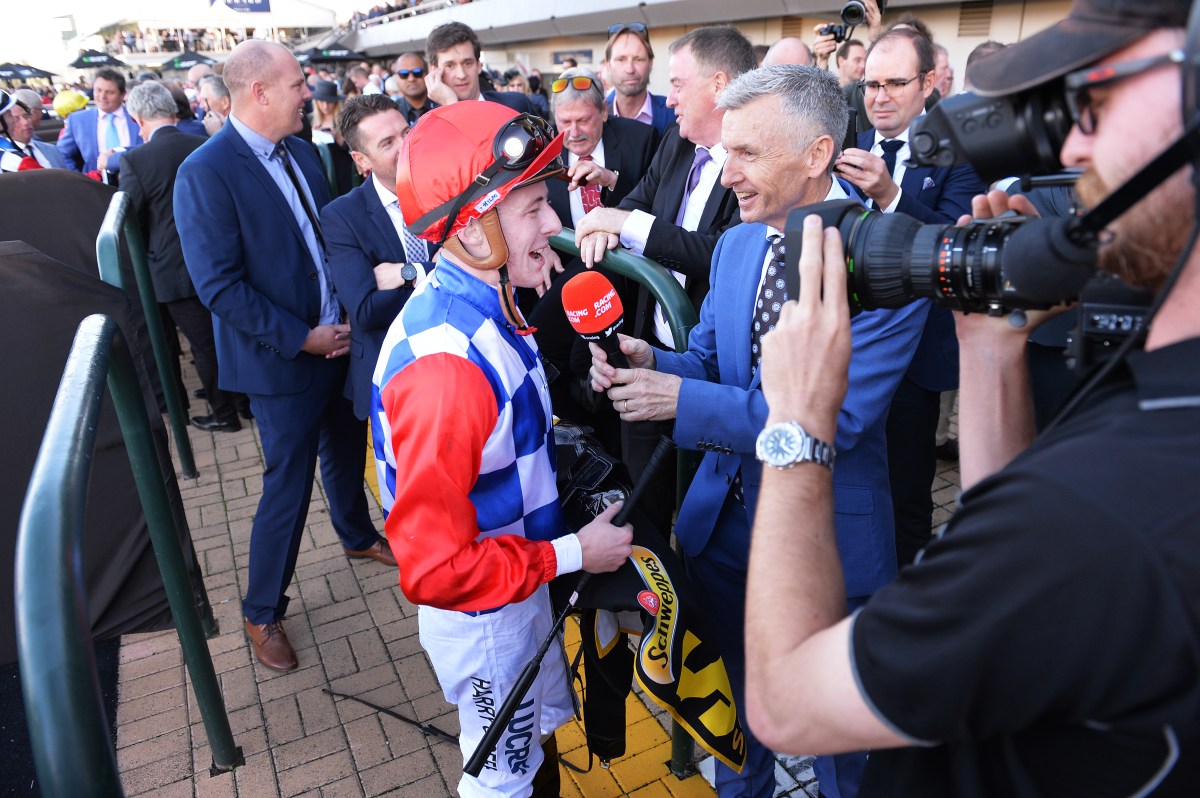
Bruce McAvaney (pictured in 2015 at the Morphettville Racecourse) has always had a passion for the races Photo: Mark Brake/AAP
Commentating sport is “a bit like studying for an exam every week”, according to McAvaney, who says he still feels the pressure of the job after nearly 50 years in the industry
“I think it’s really one of the motivating factors – the fear of failure,” he said. “I guess in a bigger sense it’s that feeling of not having done your best.
“Above that is that sense of wanting to give yourself the chance to do a decent job.”
[Sport] did something for me, it made me feel better, it made me lift whether I was playing or practising calling.
From a young age, McAvaney’s dream was to call the Melbourne Cup. His idol was Victorian race caller Bill Collins, who he would listen to on the wireless before practising his own commentary style at home.
“It was his ability to paint a picture, to express himself in a way that had clarity but also excitement,” McAvaney said of Collins.
“It made me feel good, it felt so much like I was there, it brought it to life, and I really modelled myself on him a lot.
“I did write to him when I was about 11 years of age with mum’s help and said, ‘I’m a keen youngster who wants to follow in your footsteps’.
“It was a driving ambition for me as a young boy.”
McAvaney was a middle child in a sport-centric household. His mum played netball and his dad football, while Bruce would go on to play both football and cricket during his years at Woodville High School.
He estimates that after he left home there wouldn’t have been a conversation with his dad that wasn’t “95 per cent” about sport.
“I had parents I looked up to, loved, they encouraged me, and I had this sort of I guess emotional attachment to sport from a very young age,” he said.
“It did something for me, it made me feel better, it made me lift whether I was playing or practising calling.”
Like his father who was an accountant in the taxation department, McAvaney would move into the public service after high school. Despite following the races and doing “phantom calls” for a laugh at the pub, his dreams of professional race calling faded away in his teens because “I thought it was an impossibility”.
His big break came on a trip to Melbourne in 1976 to watch harness racing where he met 5DN race caller Kevin Hillier, who invited him to be his assistant calling the trots at Globe Derby Park.
McAvaney eventually accepted and called trotting trials alongside Hillier on Sunday mornings and Wednesday nights. He said the drivers were only wearing overalls, not race colours, so he had to learn quickly how to tell them apart.
Hillier saw young McAvaney’s promise and recommended 5DN get him to fill in for the races at Oakbank. The radio station’s boss took McAvaney to the harness racing in Gawler for a snap audition.
“We stood in the crowd, and it was a big crowd in those days, and he had a tape recorder that he held in his hand, and I had to put my binoculars on and call in the middle of all these people while the other caller was calling,” McAvaney said.
“That was my audition, and I passed that … about two weeks later I went off to Oakbank.”
Fulfilling dreams at home and abroad
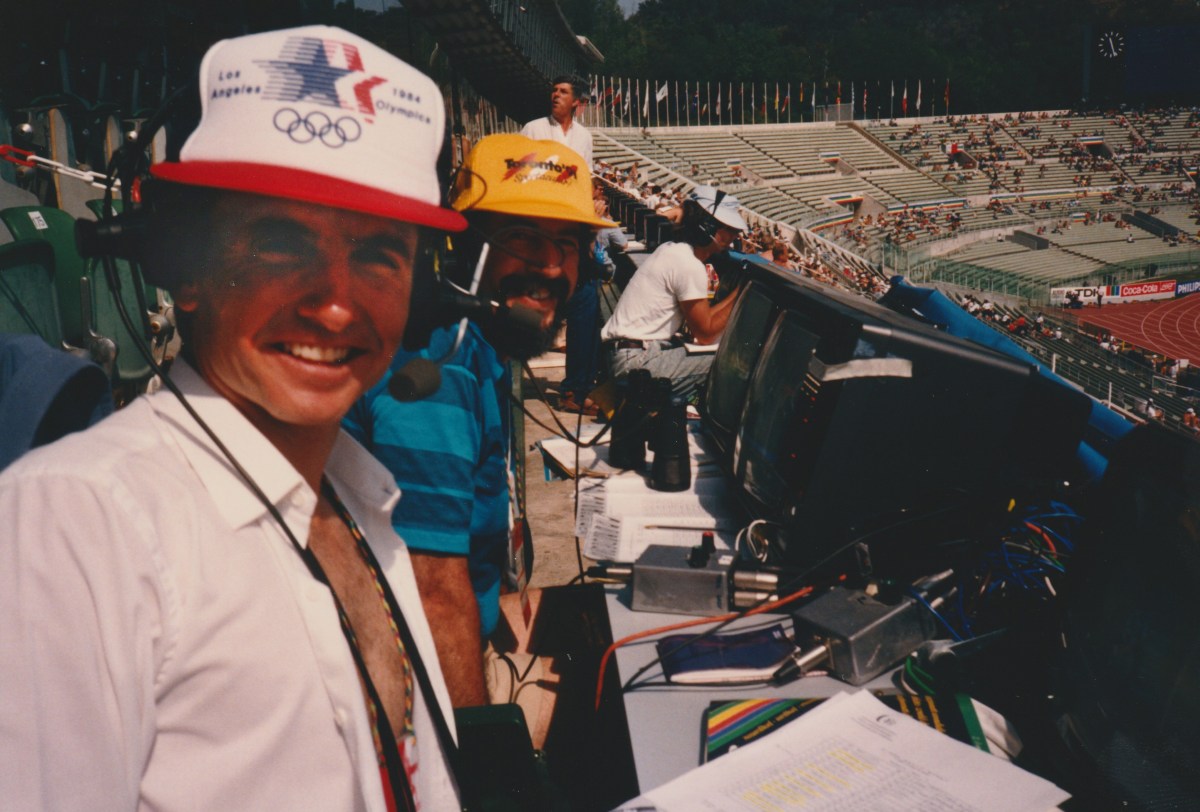
McAvaney covering the Los Angeles 1984 Olympic Games for Channel 10. Photo: supplied
Nearly 47 years on, McAvaney still describes the start of his career as a “long shot”. Since that moment, his profile rapidly increased.
He made the switch from radio to TV in 1978, joining ADS-7 (Channel 7) as a sport reader and producer, before hosting the Adelaide broadcast of the 1980 Moscow Summer Olympics – his first Games on the way to being known as “Mr Olympics”.
“It was a big breakthrough for me, and certainly as I look back now, I went from being a very minor figure in the sports media to a slightly bigger one because people saw my face for 16 days on a high-rating program,” McAvaney said.
I love the buzz, but I still get anxious about not being well organised by the time I go to air.
From 1981 to 1983, McAvaney was chief sports presenter for Seven News in Adelaide and lead commentator for the South Australian National Football League (SANFL), which at the time was still one of Australia’s leading football competitions with the likes of Russell Ebert and Malcolm Blight going head-to-head in packed suburban grounds.
“I loved it: it was like a pinnacle for me at that time to call grand finals in the South Australian National Football League,” he said.
“That was really I guess the beginning of me transitioning from race calling to other sports, so it was a big thing.”
McAvaney moved from South Australia to Victoria in late 1983 to join Channel 10 Melbourne.
Two years later, he fulfilled his childhood dream:
McAvaney called the Melbourne Cup four times for Channel 10 in 1985, 1986, 1987 and 1988. He also hosted the station’s coverage of the 1984 and 1988 Olympic Games, adding to his growing national profile.
“That move to Channel 10 when I look back was only six years out of my broadcasting life, but they were pivotal,” McAvaney said.
He went back to Channel 7 in 1989, negotiating an early exit from his Channel 10 contract after his former employer won the broadcasting rights for the 1992 Barcelona Olympics.
Reflecting on the decision now, McAvaney says it was “principally, really, in my heart of hearts to do the Olympics”.
“But the other massive gift I was given was of course to call football.”
McAvaney never looked back. He has called more than 1000 AFL games for Channel 7, including hundreds in the prime Friday night timeslot alongside his most famous commentary partner, Dennis Cometti.
The duo, defined by their contrasting styles, have been the commentary backdrop of a host of iconic football moments, perhaps most notably in a South Australian context the Adelaide Crows’ first premiership in 1997.
Cometti called his last AFL game in 2016. McAvaney bowed out from football commentary four years later.
The art of preparation
On September 25, 2000, broadcasting to a television audience of 10.5 million, McAvaney delivered one of his best calls in what he describes as the “biggest minute of my sporting life” – Cathy Freeman’s 400-metre final in Sydney.
The memorable broadcast was the product of days of rigorous preparation, the personal standard McAvaney sets for any event he’s asked to call.
McAvaney also loves his stats. Indeed, one of the trademark features of his broadcasting style is his ability to inform the viewer about the historical significance of an event as soon as it happens.
The hours of research he puts into each event gives him, by his own admission, more information than he could ever put to air.
I am obsessive by nature, and it’s tricky for me to not be fully engaged.
“The preparation can be an anchor: it can drive you – you can immerse yourself too much at times,” he said.
“The way I’ve gone about it is to try and do as much as I can and to have a really good understanding of what I’m trying to do.
“Then you can always put some things into an historical context, or you know when things that are happening that are out of the ordinary.”
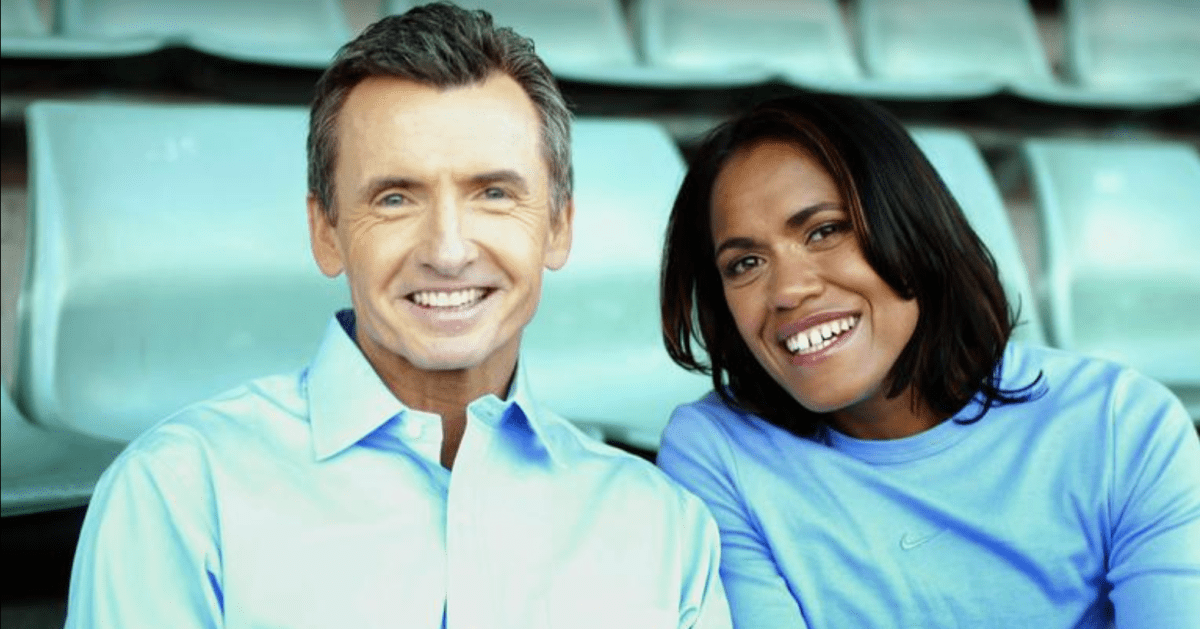
McAvaney with Cathy Freeman at the 2004 Athens Olympics. Photo: supplied
McAvaney, who was preparing for a weekend commentary gig while doing this interview, said he’s kept his research methods consistent despite changes in technology.
“I still feel the pressure – nothing will change in that way I don’t think,” he said.
“It’s part of what drives you, it’s a joy in one way. I love the buzz, but I still get anxious about not being well organised by the time I go to air.”
He also said living in Adelaide for the bulk of his career has brought challenges with travelling interstate.
“It is physically difficult: just the process of airports, packing bags, going into hotels,” he said.
“It does wear you down, constant travel, and you always feel when you arrive there that you’re under pressure.”
Contemplating a future without commentary
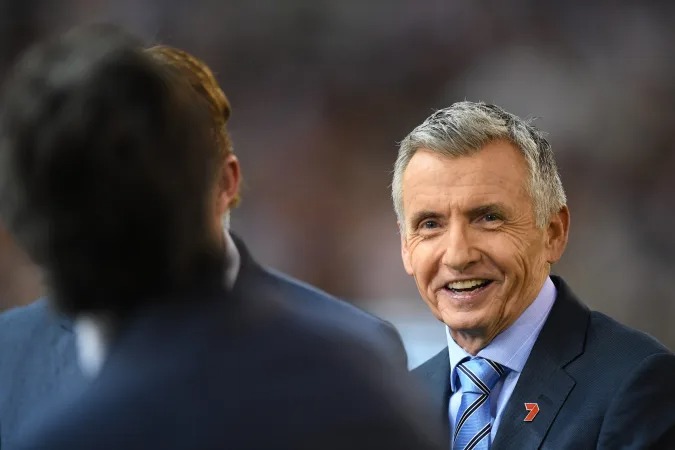
McAvaney before a game of Friday night football in 2017. Photo: Julian Smith/AAP
McAvaney has been gradually relinquishing commentary duties after revealing his diagnosis with chronic lymphocytic leukaemia in 2017.
The realisation he needed to step back came to him in the latter half of the COVID-disrupted 2020 sports year, in which he called the Caufield Cup, The Everest and an AFL preliminary final on the same day, followed by the Cox Plate and the Grand Final on the subsequent weekend.
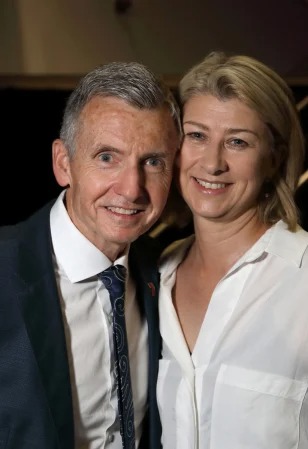
Bruce McAvaney with his wife Annie McAvaney, pictured in 2016. Photo: supplied
“They were hard yards,” McAvaney said.
“I wasn’t feeling great in terms of my health at that stage; I was feeling a little bit fragile.
“But I thought I was still seeing it pretty well, I was hoping I was anyway, so I thought I had a little bit left in the tank in a football sense.
“I just felt like the timing might be right.”
McAvaney announced in March 2021 he would not be returning for the upcoming AFL season but emphasised at the time that it was “not anything close to retirement” and he would be staying on for Channel 7’s horse racing coverage and the Tokyo Olympics.
Many athletes have struggled with the void left after retiring from elite competition. McAvaney anticipates his final exit from the commentary box could be the same
“The challenge for me will be when I can’t do it, and when is the time to stop it all?” he said.
“It’s difficult. I used to think I would stop completely. I know contemporaries that have and are happy and others that are searching.
“I think for me what I have realised through some guidance, chatting to my wife a lot, is that I probably need to do it in segments.
“But I am obsessive by nature, and it’s tricky for me to not be fully engaged.”
McAvaney intends to see out his contract with Channel 7 until the end of 2024. After that?
“Let’s see what happens”.
In the meantime, he’s eyeing a return to his South Australian roots and giving back to two of his favourite sports: thoroughbred racing and athletics.
“I’ve got great interest in perhaps being of some assistance to those two sports, because I feel like football takes care of itself and some of the other sports are well funded.
“I would like to think that over the next few years that if I could be of any help, I might be doing a bit more behind the scenes than I’m doing in front of the scenes.
“But I think I’ll always have certainly a mission, so to speak, in terms of trying to do something which is in a way I think I could contribute.”
The 2023 inductees to the South Australian Sport Hall of Fame will be celebrated at a gala event at Adelaide Oval on March 3. Go here for tickets and more information.
InDaily is the media partner of the South Australian Sport Hall of Fame and will be publishing profiles of all the new inductees throughout February.




